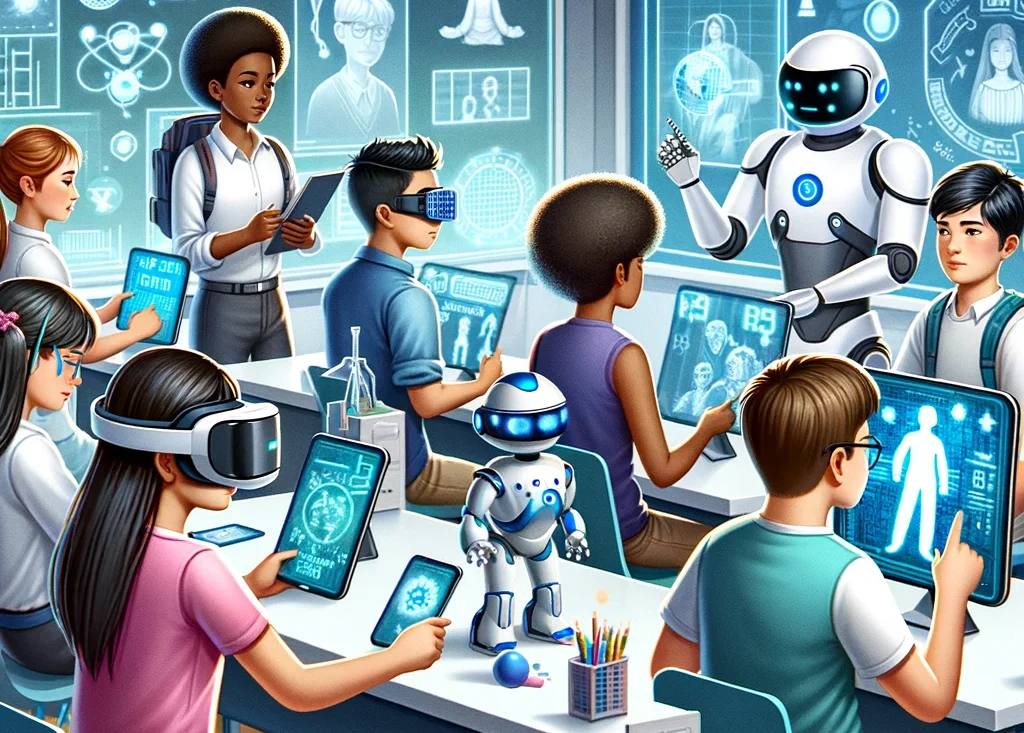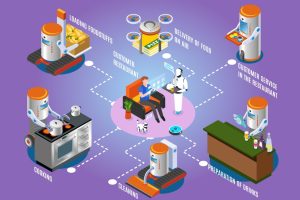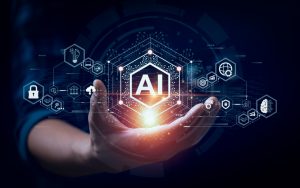In a world rapidly advancing in technology, the integration of Artificial Intelligence (AI) is poised to revolutionize the educational landscape. This article explores the transformative potential of AI in education, shedding light on key insights, technological advancements, emerging education models, and the challenges and opportunities that accompany this paradigm shift.
Key Insights
- The Current Educational Paradigm: The existing education system often mirrors the mechanics of information regurgitation, treating students as advanced robots rather than nurturing individual creativity and critical thinking.
- Technological Advancements: As we stand on the cusp of a new era, the acceleration of technological advancements, particularly in AI, promises to redefine the very essence of education.
- Rise of Alternative Models: Online schools and private education providers are disrupting traditional educational norms, offering alternatives that challenge the status quo.
- Shifting Mindsets: To fully harness the potential of AI in education, a fundamental shift in mindset is imperative among both parents and educators.
- Democratizing Creativity: AI presents the unprecedented opportunity to democratize creativity, providing an enriched educational experience that goes beyond conventional boundaries.
- Challenges in Equity and Access: While the integration of AI in learning brings immense potential, it also poses challenges related to equity and access, necessitating intentional leadership for a balanced approach.
The Changing Landscape of Education
The Impact of Technological Advancements: The next century is predicted to bring forth more technological change than the entire previous century, making it crucial for educators to comprehend and seamlessly integrate AI into the learning framework. The disruptive potential of AI in shaping the future of education cannot be overstated.
The Democratization of Education
Online schools and private education providers are emerging as formidable players, challenging traditional educational paradigms. This calls for a transformative shift in mindset among parents and educators, advocating for a balanced approach to online and traditional learning experiences.
The Role of AI in Creativity and Learning
AI’s potential to democratize creativity is a game-changer, allowing individuals without technical skills to engage in creating immersive learning environments. Natural language systems, with their revolutionary impact, underscore the need for intentional leadership in leveraging technology for educational purposes.
Challenges and Opportunities with AI in Education
Addressing challenges related to equity and access, this article emphasizes the role of intentional leadership in navigating the evolving educational landscape. It underscores the need to ensure that the integration of AI aligns with the holistic development of students.
The Future of Education with AI
In conclusion, this article highlights the nuanced dance between humans and machines in the future of education. Exploring potential alternatives to traditional education and the role of technology in democratizing creativity, it advocates for a human-centric approach amidst technological advancements. The future of education with AI calls for intentional leadership and a holistic perspective to effectively navigate this transformative journey.



